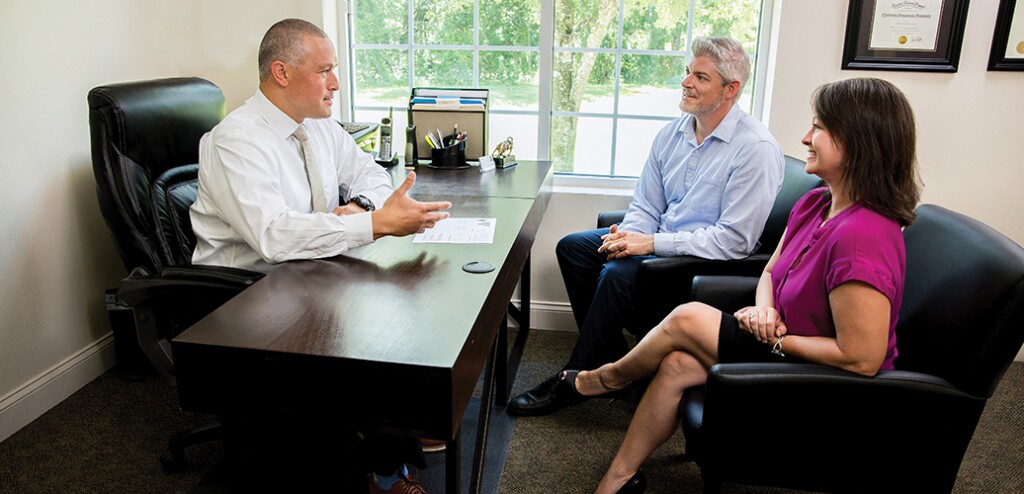After years of hard work and dedication, building a legacy you can pass along might be one of your top priorities. With each passing year, you may be thinking more about how you'll share the fruits of your labor with your loved ones, your community and the causes close to your heart.
That's where legacy planning helps. While you may think legacy financial planning is only for the ultra-wealthy, it's something anyone can (and probably should) consider. The reality is that legacy planning involves more than just money. It's a way to help set up future generations for success, positively impact your community and live your values.
Whether you've begun the estate planning process or want to incorporate your values and charitable giving into your plans, understanding more about estate and legacy planning can help.
What is legacy planning?
Legacy planning is the process of deciding how to distribute your assets after you pass away. Over a lifetime, you may be fortunate enough to accumulate various assets—your home, property, retirement savings and family heirlooms all are considered part of your estate.
Legacy planning also may include
A financial advisor can assist with your estate and legacy planning. They'll work with you and your attorney to develop an estate strategy that describes your wishes regarding your assets and ensure the necessary documents are in order.
Why is legacy planning important?
Legacy planning is important because it allows you to leave a legacy by giving according to your values and helping loved ones, all while simplifying the process. Anyone can participate in the legacy planning process; you don't need to be wealthy or close to retirement. In fact, legacy planning can be a lifelong practice. As time passes and situations change, you may revisit your plans and adjust as needed.
As you begin the process, look beyond the monetary side of things, especially if you wish to maximize the impact your assets will provide. Here are a few advantages of legacy planning:
- It helps you give according to your values and wishes. When you predetermine how you'd like your assets distributed, you can feel comfortable knowing the money, gifts and real estate left to your loved ones or charitable causes will continue to meet your values.
- It simplifies a difficult process. After you pass away, your loved ones likely will go through a probate process to review
your will and assets. It can be a stressful time for your family: They've just lost someone they love, and they need the benefit of your good planning. Having your wishes accurately and properly documented can streamline the probate process and reduces friction over disbursements.
- It sets your loved ones up for success. A legacy financial strategy also can be a gift to your loved ones. By taking the time now to set your family up for success, you can potentially help them minimize future tax responsibilities and maximize what you're leaving behind. Additionally, you may be able to put limits on what funds are spent on and how often money is accessed.
- You can leave a lasting legacy. For many, it's important to teach future generations about the values your family holds dear. Legacy planning is a way to pass on your values to your loved ones and encourage others to follow your path of giving and generosity.
What to consider during the planning process
Start with your purpose. Consider the values and principles you hold dear and want to pass on to your children, grandchildren or community.
Ask yourself who you hope to help with your assets. How can you maximize the good you can create? What are some of the most important values you want to instill in your loved ones and pass on to your community? Clearly defining these priorities provides guideposts that clarify your legacy planning.
Here are a few things to consider:
- Your vision. Think about the people and organizations most important to you and how you can use the money and assets you've accumulated to do the most good.
- Your current finances. A financial advisor can help you look at your current situation to determine how to best save for your retirement while building wealth to leave behind.
- Guardianship needs. If you have family members under your care and dependent on you, you may want to ensure they have continued care and access to necessary funds after you pass.
- A trustee. A trustee is a person (or entity) who is in charge of distributing your estate in line with your wishes after you pass away. You can appoint a loved one for this role or an outside professional such as a lawyer or accountant.
- Your family. During the planning phase, consider speaking with your loved ones about your values. Have a conversation about why it's important to you to continue passing them down to the next generation.
Legacy planning vs. estate planning
While the terms legacy planning and estate planning are often used interchangeably, there are a few important differences. That said, they often go hand-in-hand.
An estate plan helps you develop a strategy to distribute your assets after you pass. It primarily focuses on asset protection, minimizinginheritance or estate tax responsibilities and maximizing wealth through creating a will or trust.
- A legacy plan focuses on some of the intangible aspects of what you'd like to leave behind. While it still involves the monetary side of your asset distribution, you can predetermine how parts of your estate get used in a way that aligns with your beliefs and values.
Determining your purposes and values while thinking about your legacy can inform how you set up plans for your estate. For example, if education is an important value, you can designate that funds left to your
Or if charitable giving is something you want to continue after you pass, you may want to work with your financial advisor to set up a
How to get started
To get started, consider meeting with a financial advisor. Discuss the principles and values that matter most to you and whether you have specific goals you'd like to meet. From there, your financial advisor can work with you to determine the best approach to save for future generations based on your situation, needs and values.
To learn more about legacy financial planning,







